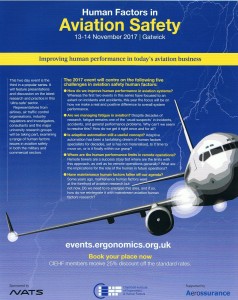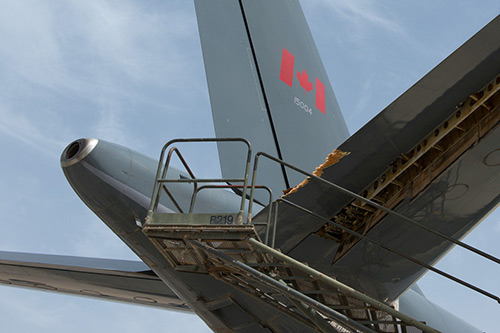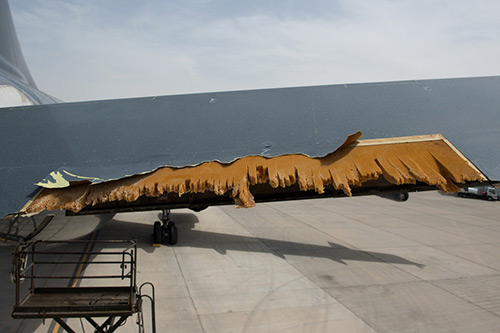Elevator Failure: Moisture + Heat
The Royal Canadian Air Force (RCAF) have reported on the loss of part of an elevator from an Airbus A310 (known as a CC-150 Polaris), CC15004, on 8 May 2015. The aircraft departed an unspecified base in support of Operation IMPACT, the Canadian Armed Forces’ (CAF) support to operations against Daesh in Iraq and Syria at 15:10 Local Time.
Upon successful completion of the mission the crew commenced their return home. Approximately 4 hours into the flight and 1 hour and 15 minutes from landing, the crew felt a significant, sudden vibration lasting approximately 3-4 seconds, and was felt in the control column, rudder pedals and throughout the entire aircraft.
The crew checked all aircraft system pages on the Electronic Centralized Aircraft Monitoring (ECAM) system and nothing unusual was found. The flight continued without further incident and landed safely at 2024 (L).
Upon landing, an exterior inspection revealed disbonding and in-flight departure of a portion of the right elevator trailing edge.
Damage was assessed as minor.
Safety Investigation
The investigation determined that high surface temperature, due to the dark paint scheme, and moisture ingress affected the properties of the structural adhesive between the elevator skin and honeycomb core to an extent such that disbonds occurred under normal operation.
Further Event
Fourteen months following the original occurrence, two additional elevators sustained disbonding without separation of any portion of the elevator from the aircraft; these were also assessed as minor damage.
The subsequent finding on 23 July 2016 was by Sean Askin, a civilian crew lead on a CC150 Polaris while deployed on operation and an employee of L-3 Communications – Military Aviation Services.
Mr. Askin had been present during [the original incident] event and ever since, he took it upon himself to conduct an extra verification of the flight controls; an inspection not expected nor required as part of his routine duties. Such an extended post-flight inspection is made even more difficult by the extreme heat, with night-time lows of 43ºC on the ramp. Using his high powered flashlight, he examined the horizontal stabilizer from a distance and discovered an abnormality in the paint that that was not duplicated on the opposite elevator. His interest piqued, Mr. Askin requisitioned a high-stand for a closer inspection only to discover a delaminated area of approximately 12 by 60 inches.
Safety Action
A number of preventive measures have already been taken on the CC150 Polaris fleet, including: the application of a new light-color paint scheme on composite surfaces to minimize heating, increased frequency of elevator inspection, and revision of the preventive maintenance program to include X-ray on a regular basis as well as ensuring the condition of the sealant is part of each elevator inspection.
In addition, a study on the potential effect of dark paint on the current RCAF inventory is in progress, along with a process review to ensure that a similar situation is not repeated.
Background
The RCAF have 5 CC-150 Polaris aircraft at 8 Wing at CFB Trenton, Ontario. As part of the Air Force Multi-Role Tanker Transport (MRTT) program, two CC-150s have been converted to strategic air-to-air refuellers for Canada’s fleet of CF-188 Hornets. These are painted in a dark grey colour scheme. As of 3 July 2017 CC-150s have flown 778 sorties in support of Operation IMPACT, delivered 21,000t of fuel to coalition aircraft (see video).

RCAF A310 CC-150 Polaris (Credit: RCAF)
Aerossurance is pleased to be supporting the annual Chartered Institute of Ergonomics & Human Factors’ (CIEHF) Human Factors in Aviation Safety Conference for the third year running. We will be presenting for the second year running too. This year the conference takes place 13 to 14 November 2017 at the Hilton London Gatwick Airport, UK with the theme: How do we improve human performance in today’s aviation business?




Recent Comments